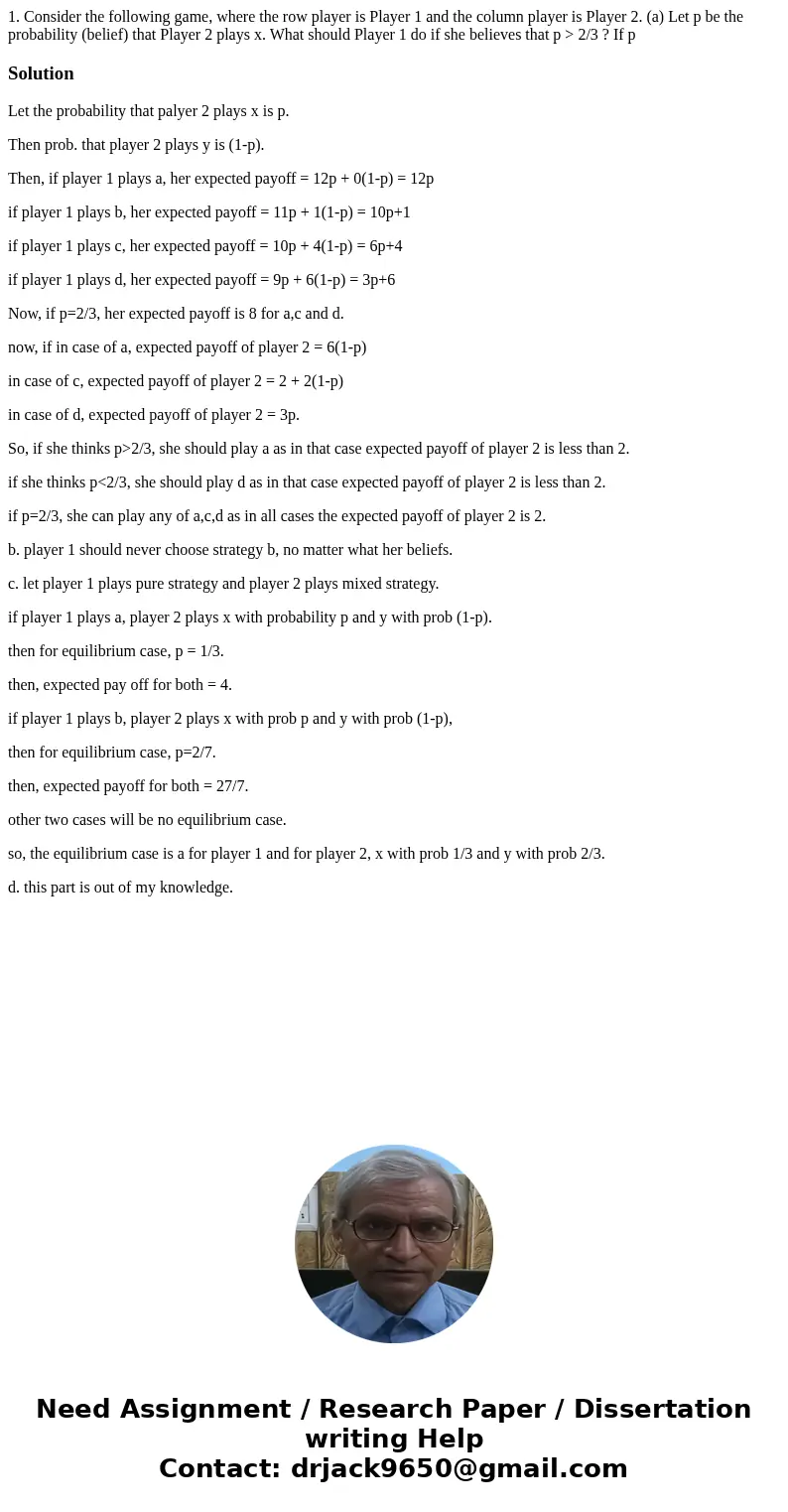1 Consider the following game where the row player is Player
Solution
Let the probability that palyer 2 plays x is p.
Then prob. that player 2 plays y is (1-p).
Then, if player 1 plays a, her expected payoff = 12p + 0(1-p) = 12p
if player 1 plays b, her expected payoff = 11p + 1(1-p) = 10p+1
if player 1 plays c, her expected payoff = 10p + 4(1-p) = 6p+4
if player 1 plays d, her expected payoff = 9p + 6(1-p) = 3p+6
Now, if p=2/3, her expected payoff is 8 for a,c and d.
now, if in case of a, expected payoff of player 2 = 6(1-p)
in case of c, expected payoff of player 2 = 2 + 2(1-p)
in case of d, expected payoff of player 2 = 3p.
So, if she thinks p>2/3, she should play a as in that case expected payoff of player 2 is less than 2.
if she thinks p<2/3, she should play d as in that case expected payoff of player 2 is less than 2.
if p=2/3, she can play any of a,c,d as in all cases the expected payoff of player 2 is 2.
b. player 1 should never choose strategy b, no matter what her beliefs.
c. let player 1 plays pure strategy and player 2 plays mixed strategy.
if player 1 plays a, player 2 plays x with probability p and y with prob (1-p).
then for equilibrium case, p = 1/3.
then, expected pay off for both = 4.
if player 1 plays b, player 2 plays x with prob p and y with prob (1-p),
then for equilibrium case, p=2/7.
then, expected payoff for both = 27/7.
other two cases will be no equilibrium case.
so, the equilibrium case is a for player 1 and for player 2, x with prob 1/3 and y with prob 2/3.
d. this part is out of my knowledge.

 Homework Sourse
Homework Sourse